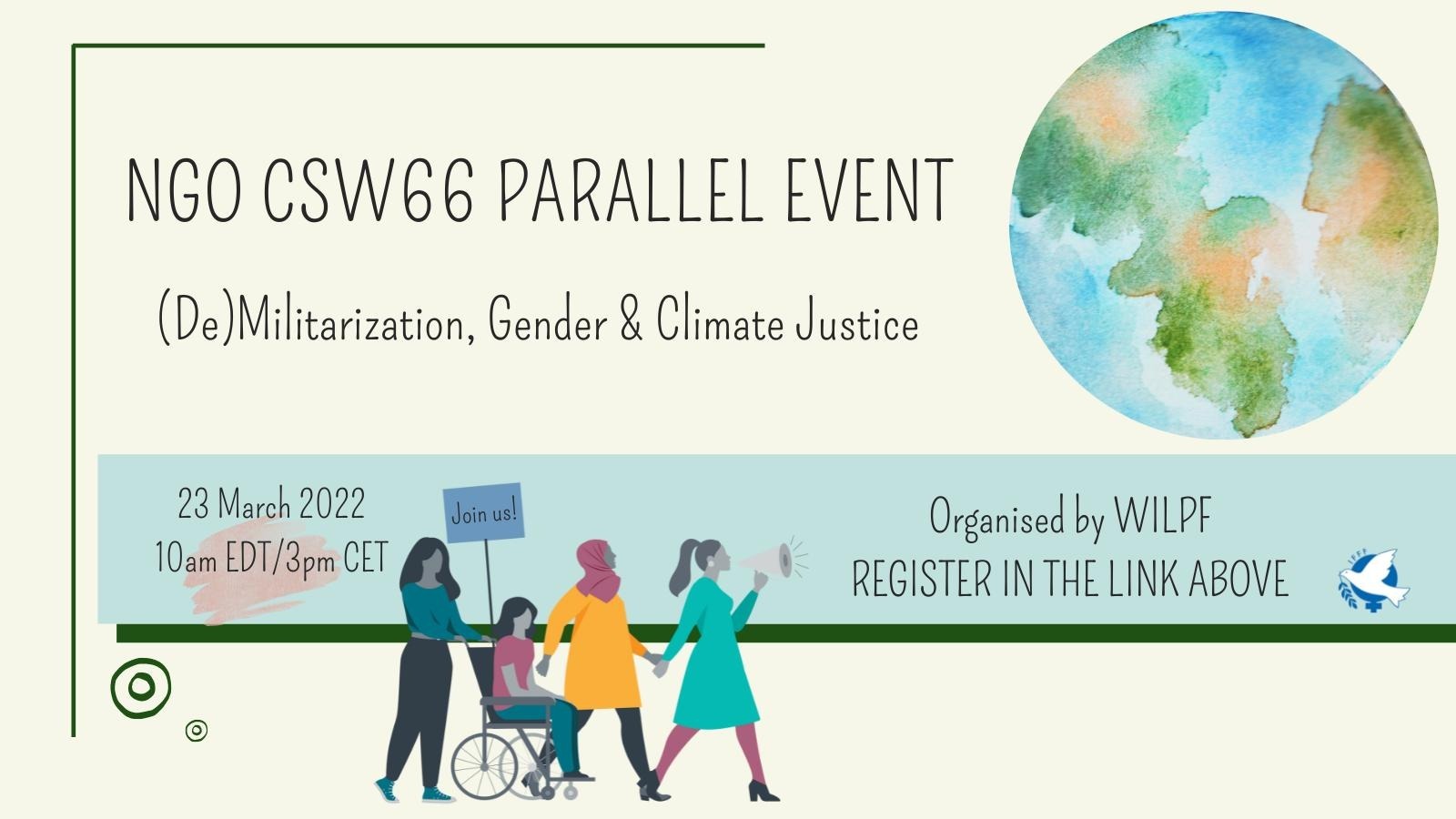Within the framework of the NGO CSW66 Parallel Forum, WILPF Germany in cooperation with the Consortium on Gender, Security and Human Rights organized an event on „(De)Militarization, Gender and Climate Justice: Connecting the Dots“.
The sixty-sixth session of the Commission on the Status of Women (CSW) took place from March 14-25, 2022 focusing on the theme: „Achieving gender equality and the empowerment of all women and girls in the context of climate change, environmental and disaster risk reduction policies and programs“. Within the framework of the NGO CSW66 Parallel Forum, WILPF Germany in cooperation with the Consortium on Gender, Security and Human Rights organized an event on „(De)Militarization, Gender and Climate Justice: Connecting the Dots“.
The two hour interactive workshop with a special panel addressed the following questions:
What role do militaries and militarization play in creating the climate crisis? What are the links between militarization and environmental injustice? And why is it crucial to understand gender in order to connect the dots?
Participants from all over the world explored the ways that demilitarization could serve multiple goals: climate justice, gender justice, and inclusive and sustainable peace.
The Parallel Event started with a 30-minute panel featuring Neta Crawford (Professor and Chair, Department of Political Science, Boston University) who spoke about the impact militaries and militarism has on the ecological crisis. Claire Duncanson (Senior Research Scholar, Consortium on Gender, Security and Human Rights, and member of the WILPF Academic Network) and Carol Cohn (Director, Consortium on Gender, Security and Human Rights, and member of the WILPF Academic Network) further analyzed how gender naturalizes militarized solutions to the climate crisis, while diverting the attention from the „climate crisis as a crisis of extractivist capitalism“ (2022).
After the panel, participants collaborated in small working groups, facilitated by Neta Crawford, Claire Duncanson, Carol Cohn, Caitlin Ryan and Susan Jackson. In these groups participants developed ways that demilitarization could be linked to finding sustainable and gender-just solutions to the climate crisis, which were presented in a plenary.
Thank you to everyone who joined our workshop! If you are interested in working regarding demilitarization, gender and climate justice, please get in touch with Michelle Benzing (benzing@wilpf.de) or join the International Environmental Working Group!

